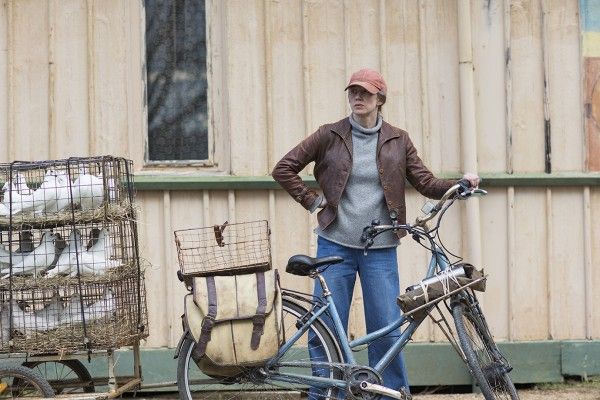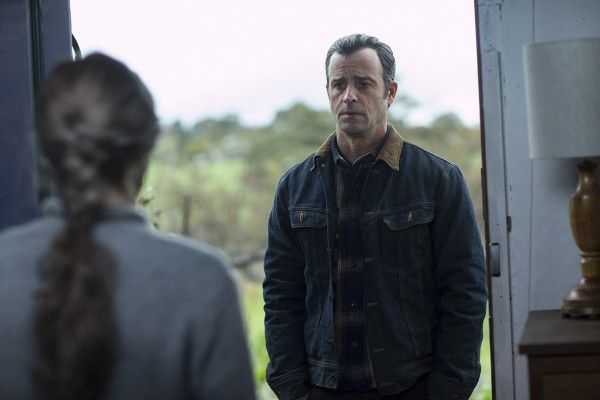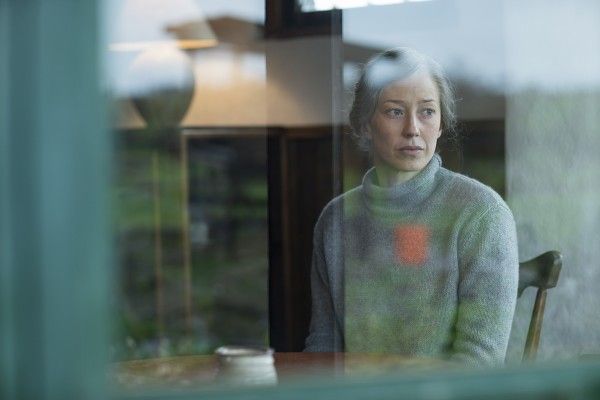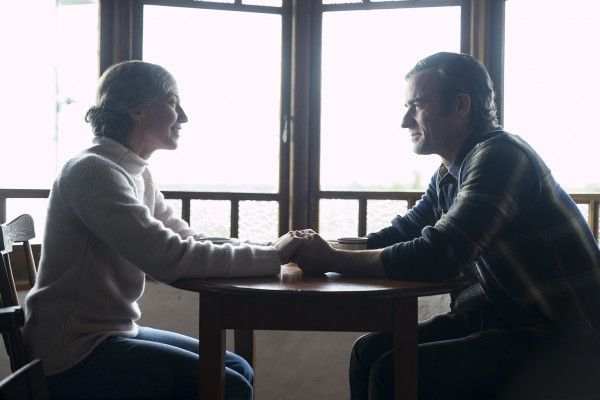HBO's The Leftovers has never really been a show about answers. In fact, the very first episode begins after the inciting event—when roughly 2% of the world’s population suddenly vanished. Throughout three seasons, the series chronicled the impact of the Sudden Departure on those left behind, resulting in an intensely emotional, surprisingly funny, and oftentimes downright weird story about grief, loss, and feeling broken. In fact, early on in the show’s run, co-creator/showrunner Damon Lindelof came out and said he had no interest in explaining the Sudden Departure, (nor did author Tom Perotta’s book, from which the show was based). So viewers were primed for a series not about mythology, but about character, emotion, and story.
One could make a case for this as a parallel to Lindelof’s other famous TV series, Lost, as the two shows have more in common than one might think. While some complained that the Lost series finale failed to answer the burning mythological questions that hung over the entire show, Lindelof and Carlton Cuse had addressed all they cared to on that front, and instead spent the finale focusing on what actually mattered: the characters.
So as The Leftovers began its third and final season, coming off an absolutely phenomenal second season that marked an intense creative upswing, I was primed and ready for more weirdness, more crying, and more humor, but I had zero expectations—or, really, interest—in learning “the truth” about the Sudden Departure. When those final moments of The Leftovers series finale, “The Book of Nora”, began with Nora Durst (Carrie Coon) revealing that she actually did cross over and saw where The Departed went, I felt a mix of surprise, elation, and then deep sorrow.
Indeed, Nora reveals that she actually did go through the machine that promised to reunite her with her kids. She crossed over. But in doing so she learned that there exists an alternate reality, another Earth, where 2% of the world’s population didn’t disappear—98% of it did. She makes the long, long trek from Australia back to Mapleton (which is tough because there aren’t enough pilots and there aren’t any boats that go directly to New York— such are the perils of losing a massive swath of human beings at once), where she returns to her old home. Watching from afar, she finds her husband there with her now-grown kids and another woman, and she realizes in their world, they were the lucky ones. In a world full of orphans, they still had each other. Nora, a stranger in a strange land, is now “a ghost.” So she opts not to interrupt. They’re happy, they’ve moved on. They still grieve I’m sure, but they don’t need Nora back. So she seeks out the inventor of the machine that sent her here and tasks him with building another, so she can return to where she came from. And she does.
This was a lot to take in, especially considering the preceding 60 minutes of the episode had focused on a much older Nora being confronted with a much older Kevin, who pretends they never had a romantic relationship at all, choosing instead to wipe the slate clean. But that doesn’t work. It can’t. He fesses up—he’s spent two weeks of every year searching for Nora in Australia, refusing to believe that she’s gone. In the series’ penultimate episode, “The Most Powerful Man in the World (and His Identical Twin Brother)”, Kevin essentially murders his doppelgänger in the afterlife world, where his doppelgänger says to him, “We fucked up with Nora.” He came back from the land of the dead once more, but this time seemingly determined to fix that broken relationship and finally do right.
This is what I wanted out of The Leftovers finale, and this is what we got. Lindelof and co-writer Perotta crafted an episode about Kevin and Nora, two incredibly broken people, finally dropping the act and admitting their brokenness to each other. Kevin does what Nora could never really do when he was being hailed as a resurrected Jesus figure—he believes her, unequivocally. Why? “Because you’re here,” he says.
That’s what this series has been about all along: Those that are still here. As Nora glimpses the flip side of the coin, where The Departed are the ones that remain, she finds her family has moved through their grief and built a life. This doesn’t mean you have to forget about those that are gone, and God knows grief is not a “one size fits all” kind of deal, but they made peace with their new lives. They found joy in still living—something the characters of The Leftovers fought so hard against in favor of seeking answers to unanswerable questions.
The questions that were important to The Leftovers always had to do with character. Can Kevin and Nora ever be happy together? Will Matt stop lying to himself? What sound does a penis make when flopped onto an identity scanner? (Okay maybe not so much that last one). The finale, and its preceding episodes, really answered all of this perfectly, and while the explanation regarding what happened to those in the Sudden Departure wasn’t important to me personally, it served as the cherry on top of the finale sundae and reinforced the main themes of the show.
Honestly, Lindelof and his writers found the perfect way to address this question of the Sudden Departure in a manner that was key to the overall story. The catharsis that Nora and Kevin feel in those final moments, their admission of joy and, hopefully, the start to living the rest of their lives together, is incited by Nora’s story and experience on the other side. In a rare moment of absolute honesty (Though an alternate read on this could be that Nora never went through and is making this all up, but I can't bring myself to believe that read on the finale right now however valid it may be for some people), Nora tells Kevin how it made her feel to see her family, her kids, and why she couldn’t reconnect with Kevin when she came back. This openness, this candor regarding her feelings, is difficult for Nora. She’s spent the series frustrated that no one could ever understand her pain while also hiding just how much it hurts to have lost her entire family. She fought so hard to be tough, to appear unfazed, that all of her relationships suffered. This is true of Kevin in many ways as well, but this finale isn’t so much about Kevin anymore. It’s the Book of Nora.
In tying this answer to “the big question” into the thematic conclusion of the series, The Leftovers comes to a wholly satisfying, cathartic end. It’s been wild, strange ride—a show that began as almost punishingly depressing evolved into a more human series, and then doubled down on incredibly risky genre-tinged elements. This entire series was a tightrope walk, at some points nearly tipping over, but boy did it stick the landing. Was every single thing wrapped up into a nice, neat bow? Of course not. But the questions that needed answering—the ones dealing with emotion, character, and theme—were answered in a wholly satisfying, emotionally cathartic manner (it’s not The Leftovers if you’re not reduced to a puddle of tears).
What I’m going to miss most about The Leftovers are these people, however broken they were. Nora, Kevin, Matt, Laurie, Erika, even Patti—these are extremely messed up characters, living in a messed up world. But that’s life isn’t it? It’s hard. It’s painful. At times we feel like giving up. But we don’t, we can’t. We have each other. We’re still here.





